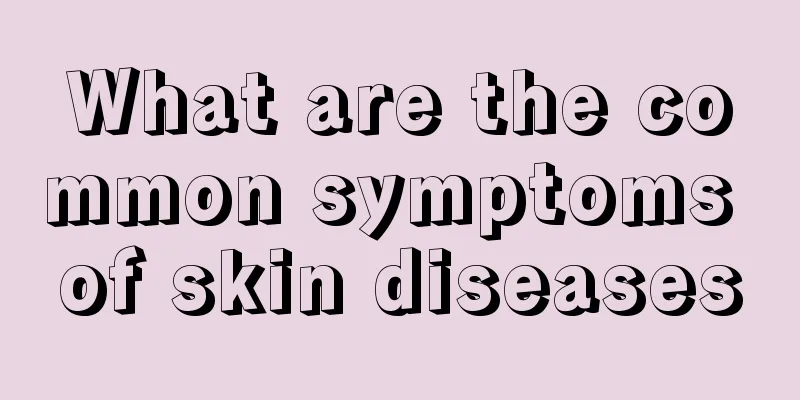Is nasopharyngeal carcinoma a hereditary disease?

|
Nasopharyngeal carcinoma is not a purely hereditary disease, but genetic factors may increase the risk of disease. The etiology of nasopharyngeal carcinoma is complex, involving multiple factors such as genetics, environment, and viral infection. Prevention and treatment require comprehensive intervention, including regular screening, a healthy lifestyle, and targeted treatment. 1. The role of genetic factors in nasopharyngeal carcinoma The incidence of nasopharyngeal carcinoma is related to genetic susceptibility. Studies have found that certain gene mutations may increase the risk of nasopharyngeal carcinoma, such as specific mutations in the HLA gene family. People with a family history of nasopharyngeal carcinoma have a higher risk of the disease than the general population, but genetics is not the only determining factor. Genetic testing can help assess genetic risk, but it needs to be combined with other factors for comprehensive judgment. 2. Impact of environmental factors on nasopharyngeal carcinoma Environmental factors are an important cause of nasopharyngeal cancer. Long-term exposure to smoking, secondhand smoke, air pollution and other environments will increase the damage to the nasopharyngeal mucosa and the risk of cancer. Nitrosamines in pickled foods have also been shown to be closely related to nasopharyngeal cancer. Reducing exposure to harmful substances and improving the living environment are the keys to prevention. 3. Relationship between Epstein-Barr virus infection and nasopharyngeal carcinoma Epstein-Barr virus infection is one of the main causes of nasopharyngeal carcinoma. The virus can remain dormant in the nasopharyngeal mucosal cells for a long time, causing abnormal cell proliferation and cancer. Regular Epstein-Barr virus antibody testing, early detection and intervention of infection, can help reduce the incidence of nasopharyngeal carcinoma. 4. Prevention and treatment of nasopharyngeal carcinoma Prevention of nasopharyngeal cancer should start with lifestyle. Quitting smoking and limiting alcohol consumption, avoiding pickled foods, and keeping indoor air fresh are basic measures. For high-risk groups, regular nasopharyngeal endoscopy, Epstein-Barr virus testing, and imaging examinations can help detect lesions early. In terms of treatment, radiotherapy is the main means of nasopharyngeal cancer, combined with chemotherapy and targeted therapy to improve efficacy. Immunotherapy and gene therapy are also gradually being used in clinical practice, providing patients with more options. The onset of nasopharyngeal carcinoma is the result of the combined effects of multiple factors, of which genetic factors only account for a part. By understanding the cause, taking scientific preventive measures and early treatment, the risk of disease can be effectively reduced and the cure rate can be increased. For high-risk groups, regular screening and health management are particularly important. |
<<: Are intrahepatic calcification or intrahepatic bile duct stones serious?
>>: What are the symptoms of duodenal cancer
Recommend
Psychological distress and adjustment in the workplace
The workplace is known as a battlefield without t...
Is liver cancer a digestive tract cancer? Be careful to prevent these 5 common digestive tract cancers
Digestive tract cancer is a disease in which canc...
Why is my back numb and tight?
If your back is always numb and tight, you should...
Can I eat chili peppers and garlic if I have a medical abortion
Can I eat chili and garlic if I have a medical ab...
What are the symptoms of advanced liver cancer one month before death? Symptoms of advanced liver cancer before death
Liver cancer is one of the cancers that threaten ...
What should I eat if I often have dry eyes?
Dry eyes are an important factor that damages vis...
Purple bloodshot on the outer thigh
Many people will find that in life, they will alw...
What is the reason for TG abnormality after hemisection of thyroid cancer
Thyroid cancer is a malignant tumor originating f...
"Leftover food" has nothing to do with "night"
The saying that "leftover vegetables cause c...
What are the common characteristics of neurosis?
Neurotic head diseases have several common charac...
When is the most effective time to exercise abdominal muscles
Nowadays, people are particularly fond of physica...
The principle of how milk can relieve spiciness is like this
In daily diet, it is common for people to feel sp...
Breast cancer usually causes some skin changes
Breast cancer usually causes some skin changes. I...
Ulnar nerve rupture at wrist
The wrist is the joint connecting the palm and th...
Can I use a facial mask during menstruation?
Facial mask is a skin care product that female fr...









